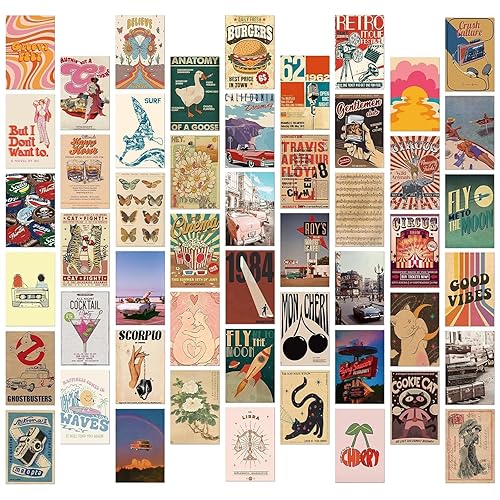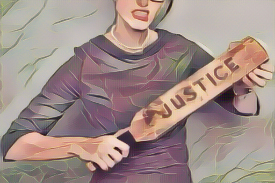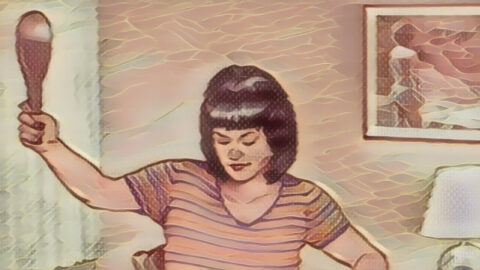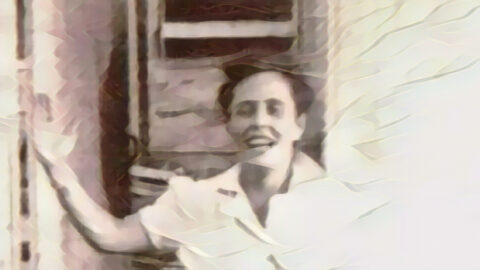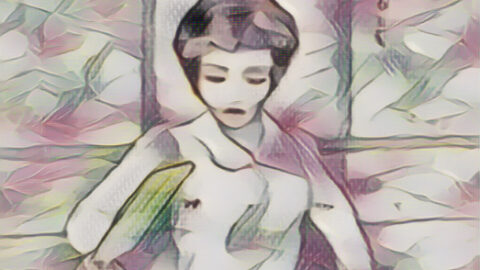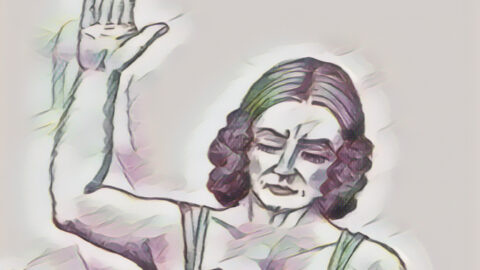I grew up in the 1960s, in a small, close-knit town on the south coast of Norway—a region often called the Bible Belt for its deep-rooted traditions and quiet, orderly streets. The air always seemed tinged with the scent of salt from the nearby sea, and the rhythm of life was slow, predictable, and safe. Our house was modest, painted a pale yellow that glowed in the long summer evenings, and the garden was always neat, with a sturdy birch tree standing sentinel at the back fence.
My mother was the undisputed authority in our home, a woman of strong convictions and gentle hands, but when it came to discipline, she believed in the old ways. Corporal punishment was not something she relished, but she saw it as a necessary tool—a way to teach right from wrong. Still, she reserved it for moments when she felt I had truly crossed a line, and even then, there was a ritual to it, a sense of order and care.
Usually, when I had misbehaved, she would take me gently by the hand and lead me up the narrow wooden stairs to my small bedroom. She would sit on the edge of my bed, her face serious but not unkind, and pull me over her lap. The spankings themselves were never harsh—just enough to sting and remind me of the boundaries I had overstepped. Afterwards, she would always gather me into her arms, holding me close until my tears subsided, whispering that she loved me and that it was all over now. But as I grew older, the world seemed to demand a stricter hand, and so did she.
I remember one Saturday in particular, a day that started like any other but ended up changing the way I saw both my mother and myself. That morning, I had gotten into a scuffle with a boy from down the street—a wiry, quick-tempered kid who always seemed to be spoiling for a fight. When his mother came to break us up, I, still bristling with anger, shouted a string of new words I’d picked up from the older boys at school. The look on her face was a mixture of shock and hurt, and I felt a strange thrill at having crossed a forbidden line.
Later that afternoon, I hurried home, eager to catch the English soccer match that was a Saturday ritual in our house. The streets were quiet, the sky heavy with the promise of early winter, and I could almost taste the anticipation of the game. But as I rounded the last corner, my heart plummeted. There, at the end of our garden path, was the very woman I had shouted at, just leaving our house. Her lips were pressed into a thin line, and she didn’t look at me as she passed.
My steps slowed, dread pooling in my stomach. When I reached the front door, my mother was waiting, her expression unreadable. She didn’t say a word—just pointed up the stairs, her finger trembling slightly. As I darted past her, she delivered a swift, stinging swat to my backside, a warning of what was to come.
Alone in my room, I sat on the edge of my bed, legs swinging nervously, listening to the muffled sounds of the house below. The familiar comfort of my books and toys did nothing to calm me. I waited, every creak of the floorboards making my heart race. After what felt like an eternity, curiosity got the better of me, and I crept to the window.
Outside, in the fading light, I saw my mother by the old birch tree. She was methodically cutting slender twigs, her movements precise and deliberate. The branches were bare, stripped of their leaves by the November wind, and each twig she selected seemed to carry a silent weight. She placed them carefully in a basket, her face set in grim determination. When she glanced up, I ducked away from the window, my cheeks burning with shame and fear.
The minutes stretched on, thick with anticipation. My mind raced with memories of stories I’d heard from older relatives about the birch rod—a symbol of discipline in Norway for generations, but one that was slowly fading from use as attitudes changed. I had never seen one up close, and the thought of it filled me with a cold, prickling dread.
At last, I heard my mother call my name, her voice calm but firm. I opened the door and stepped onto the landing, my legs suddenly heavy. She stood at the bottom of the stairs, waiting. “Come down to the kitchen,” she said, and I obeyed, my heart thudding in my chest.
The kitchen was warm and bright, the smell of baking lingering in the air, but my eyes were drawn immediately to the table. There, lying in plain sight, was the birch rod—a bundle of ten or twelve thin, flexible twigs, bound tightly with a rubber band. It looked almost harmless, but I knew better.
My mother wasted few words. Her voice trembled with emotion as she told me she had never been so ashamed in her life, and that from now on, things would be different. There would be rules, and there would be consequences. She picked up the birch and told me to bend over the table.
I stood there for a moment, my hands gripping the edge, every muscle tense with anticipation. The silence was thick, broken only by the ticking of the kitchen clock and the distant hum of the radio in the living room.
I bent forward, pressing my forehead to the cool wood, my knuckles white as I clung to the table’s edge. My mother’s footsteps were slow and deliberate as she moved behind me. I could hear the faint rustle of the birch twigs as she raised the rod, the air seeming to tighten around us. (short pause) The first stroke landed with a sharp, stinging snap, a line of fire blossoming across my skin. I gasped, the pain immediate and electric, my body jolting in surprise. The birch left a thin, burning welt, and before I could catch my breath, the second stroke followed—slightly lower, the sting doubling, my eyes squeezing shut as I tried to hold back tears. (pause) Each stroke was precise, the twigs biting into my bare skin, leaving a trail of heat that built with every lash. By the fifth stroke, my resolve crumbled; my bottom felt as if it were ablaze, and hot tears spilled down my cheeks, blurring the edges of the room. (pause) My mother’s voice was steady, but I could hear the strain in it as she counted softly under her breath, each number marking another wave of pain. The birch hissed through the air, the sound almost as sharp as the sting itself. I lost count of the strokes after that, the pain and humiliation mingling until I was sobbing openly, my body shaking with each new lash. (pause) The final strokes seemed to linger, the twigs catching on already tender skin, and when it was over, I could barely stand, my legs trembling. My mother placed the birch on top of the cupboard, high out of reach, and told me to go straight to bed. Her voice was gentle again, but there was no room for argument.
That night, I lay awake for a long time, the ache in my body matched only by the ache in my heart. I replayed the day’s events over and over, feeling a strange mixture of guilt, anger, and relief. I knew I had deserved some kind of punishment, but the reality of it was harsher than I had imagined.
The next morning, sunlight streamed through the kitchen window as I came down for breakfast, my steps tentative. My mother was already at the table, her face softer than it had been the night before. Without thinking, I went straight to her and mumbled an apology, my voice thick with emotion. She pulled me into a hug, holding me tightly, and told me that she loved me, that she only wanted what was best for me. She warned me, though, that she would not hesitate to use the birch again if I gave her reason.
As I sat down, I winced, and she couldn’t help but smile a little at my discomfort. I caught her eye, then glanced up at the cupboard, where a few birch twigs peeked out, a silent reminder of the previous day. From that moment on, the birch rod became a fixture in our house—a symbol of discipline, yes, but also of my mother’s unwavering love and her hope that I would grow into a better person.
Most days, just knowing it was there was enough to keep me in line. But every so often, I would slip up, and my mother would reach for the birch, or head out into the garden to cut a fresh one. Each time, the ritual was the same: the anticipation, the pain, the tears, and finally, the comfort of her arms around me, reminding me that even in discipline, there was love. Those memories, vivid and bittersweet, have stayed with me all my life—a testament to the innocence and discipline of childhood in a small Norwegian town.








